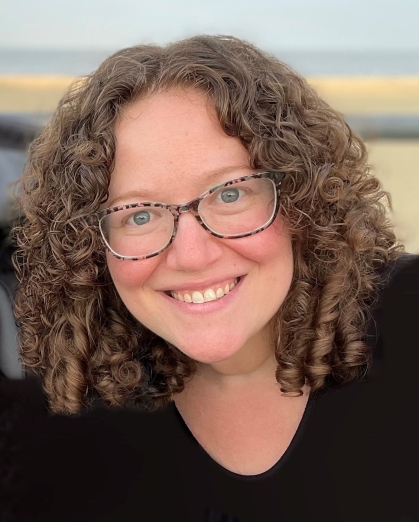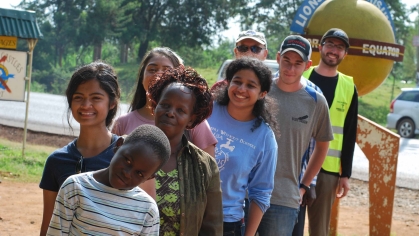To Your Health! A Conversation with Dana Simons, CAPS Community Based Counselor
“It’s a privilege to work with students and to provide an environment in which they can feel truly heard and supported – and in which they aren’t being judged.” – Dana Simons

Dana Simons, a licensed professional counselor in New Jersey and a nationally certified counselor, is the School of Engineering’s embedded CAPS (Counseling, Alcohol and Other Drug Assistance Program & Psychiatric Services), Community Based Counselor (CBC). Her extensive history includes particular expertise in anxiety, depression, trauma, personality disorders, and work with the LGBTQIA+ community.
What are your responsibilities as a CBC at CAPS?
CBCs are clinically trained social workers, licensed counselors, and psychologists who provide a variety of services in embedded locations across Rutgers. We provide direct counseling services and host Let’s Talk drop-in hours for students in their assigned locations.
In addition, CBCs develop relationships with deans, faculty, staff, and student leaders where they offer consultation and support mental health and wellness initiatives. We serve as a resource for those in need of additional services, whether on campus or in the community, and provide education about mental health, substance use, and campus resources. We also lead workshops that enhance student health and well-being, and share strategies for coping with the stresses of college life.
What does Let’s Talk involve?
It offers easy access to free informal consultations with CAPS counselors, with hours held at different sites on campus. During a Let’s Talk appointment, I can talk through issues with students, provide support and guidance to resources that can help them. Let’s Talk confidential conversations are available in-person, by phone, or by Zoom.
What other services are available to SoE students?
In addition to Let’s Talk, students may be provided with options including a referral to one of the many groups offered by CAPS, from individual counseling sessions, and referrals to a psychiatrist, to campus or community referrals.
CAPS spectrum of services includes time-limited individual therapy, assessment and treatment of students with substance use problems, and psychiatric medication management. Specific counseling services include: Brief Individual Therapy, Group Psychotherapy, Crisis Intervention, Referrals to Community Specialists, Mandated Assessments.
What kind of workshops do you offer SoE students?
I plan to offer various workshops in the future on topics ranging from Time Management and Life Balance and Self-Acceptance to Stress and Anxiety Reduction and Stigma Reduction.
What are the biggest mental health challenges facing today’s students?
Mental health problems are common among college students, which is connected to the fact that mental health disorders have their peak onset during young adulthood.
In addition to navigating academic and financial stress, challenging social relationships, and developing independent living and self-care skills, students can often experience anxiety, depression, eating disorders, or problems with substance use.
Suicide is, unfortunately, among the three leading causes of death for college students. Our suicide prevention efforts focus on disseminating information around campus about warning signs, intervention, as well as supporting students who are at risk and ensuring that those in need have access to mental health services.
How does the CBC team help to destigmatize student mental health issues?
The team is committed to destigmatizing mental health issues through psychoeducational workshops, presentations, and participating as members of their embedded communities in order to reduce fear about using mental health services and to normalize student experiences.
What services do you offer LGBTQ+ students?
Rutgers CAPS strives to offer services to LGBTQ+ identified students from an informed and affirming perspective. Many staff members have life experience and/or have received specific training related to supporting these communities. In addition, we have led workshops for specific departments, faculty, and staff around contributions we can all make towards a more inclusive community.
What is most satisfying to you as a CDC?
It’s a privilege to work with students and to provide an environment in which they can feel truly heard and supported – and in which they aren’t being judged.
It’s especially satisfying when I’m able to help other individuals feel empowered to make changes for themselves, whether that is by practicing assertiveness skills, recognizing their own strengths, achieving self-acceptance, evaluating work-life balance, or challenging thought patterns or behaviors that are no longer serving them.
In addition to my individual work with students, I also value the support students are able to give to each other. I enjoy facilitating groups and workshops in which students experience – often for the first time – the opportunity to relate to their peers and realize that they aren’t alone.


